Airport
The 10 Best Airports In The World In 2019 : Skytrax Awards

10. Zurich Airport
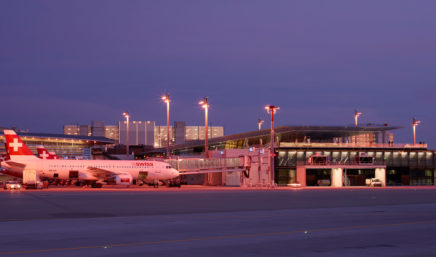
It is the largest international airport in Switzerland and is the hub airport for Swiss International Air Lines. Zurich Airport has three runways and three terminals. It offers scheduled and charter flights to 203 destinations in
67 countries around the world.
– 31.1 million passengers and 278.458 flights in 2018
– Important European hub with 28,4% connecting traffic
– An ideal gateway to Europe with efficient connections to 66 countries
– One of the largest European cargo airports with an annual capacity of 700.000 tonnes
– Diversified handling services
– Competitive airport charge structure.
It is also Ranked as “Best Airport in Europe” in the category “20-30 mio.
passengers” by World Airport Award (Skytrax)
09. Tokyo Narita
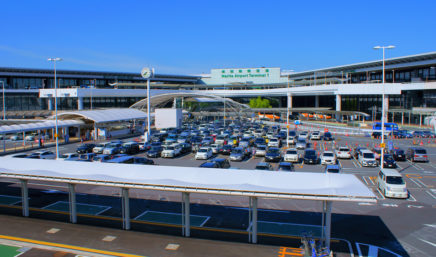
Tokyo Narita Airport is an international airport serving the Greater Tokyo Area of Japan. Narita serves as the international hub for Japan Airlines and All Nippon Airways. As of 2016, Narita was the second-busiest passenger airport in Japan. In 2017, Narita served 40,631,193 passengers, making it the 49th busiest airport in the world in terms of passenger traffic. Narita serves as the main international hub of Japan Airlines, All Nippon Airways, and Nippon Cargo Airlines
08. London Heathrow
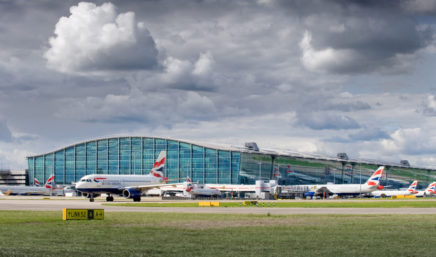
London Heathrow Airport is the busiest airport in the UK and busiest airport in Europe by passenger traffic
– Annual passengers: 78.0 million
– Daily average total number: 213,668 (51% arrivals / 49% departures)
– Busiest day ever recorded (passenger numbers): 30 June 2017 with 259,917
– Busiest year ever recorded (passenger numbers): 2017 with 78.0 million
Flights 2017
-Annual air transport movements: 474,033
-Daily average air transport movements: 1,299
07. Munich Airport

It is a major international airport near Munich, the capital of Bavaria. It is the second-busiest airport in Germany in terms of passenger traffic after Frankfurt Airport. It is the world’s 15th-busiest airport in terms of international passenger traffic and was the 38th-busiest airport worldwide in 2018. As of March 2018, the airport features flights to 266 destinations, making it the airport with the fifth-most destinations worldwide. Munich Airport serves as a hub for Lufthansa including Lufthansa Regional and its Star Alliance partners.
06. Centrair Nagoya
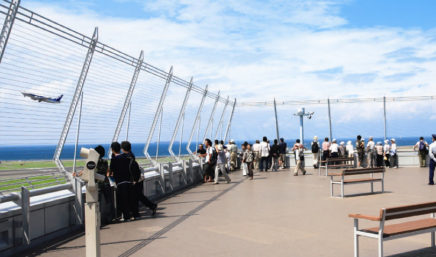
In 2014, 9.8 million passengers traveled through Central Japan International Airport in Nagoya, better known as Centrair. The airport has a large domestic traffic percentage, with a number of regional routes operated to Asiana cities such as Bangkok and Singapore. Longer haul routes include Helsinki, Frankfurt, Honolulu, and Detroit.
Chubu Centrair International Airport is the main gateway
to Nagoya and the Chubu region of Japan. Hosting domestic, regional and international passenger
and cargo services for over 20 airlines, the airport is a
domestic hub for ANA Airlines.2018: For 4 consecutive years, Chubu International
Airport won “The World’s Best Regional Airport”
award (Skytrax)
05. Hong Kong Airport
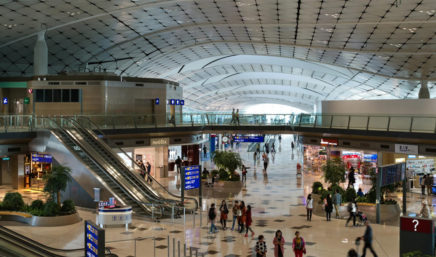
It is Connecting to over 220 destinations worldwide by over 120 airlines. More than 74.7 million passengers handled and 5.1 million tonnes of cargo and air mail moved in 2018. with 2 runways in operation handled 427,725 air traffic
movements in 2018. Hong Kong International Airport serves over 100 airlines operating flights to about 180 locations worldwide, including 44 destinations on the Chinese Mainland. It is former, multiple winners of the Airport of the Year title at the World Airport Awards.
04. Doha Hamad
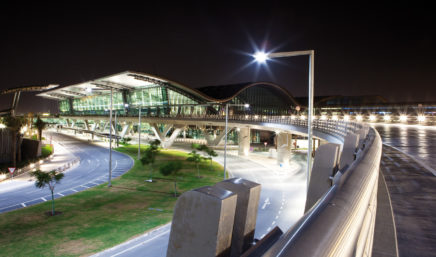
Hamad International Airport is the international airport for Doha, the capital city of Qatar. The existing terminal can accommodate up to 30 million passengers annually and has been described as the most architecturally significant terminal complex in the world, as well as being the most luxurious.
03. Seoul Incheon airport
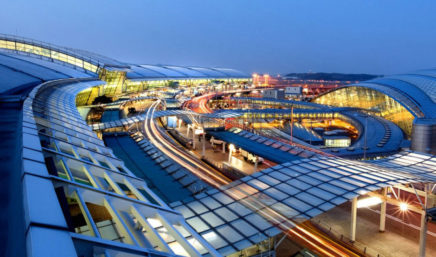
Incheon International Airport is the largest airport in
South Korea and one of the largest airports in the world. The airport holds a record of being ranked the Best Airport Worldwide for 11 consecutive years by the Airports Council International (ACI)’s Airport Service Quality Award from 2005 to 2016. Incheon International Airport’s terminal has 111 boarding gates altogether, with 44 in Terminal 1, 30 in Concourse A (connected to terminal 1), and 37 in Terminal 2.
02.Tokyo Haneda
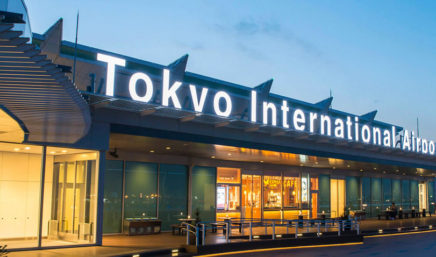
It is one of the two primary airports that serve the Greater Tokyo Area and is the primary base of Japan’s two major domestic airlines. Haneda handled 85,408,975 passengers in 2017; by passenger throughput, it was the third-busiest
an airport in Asia and the fourth-busiest in the world. It is able to handle 90 million passengers per year following its
expansion in 2010. With Haneda and Narita combined Tokyo has the third-busiest city airport system in the world.
01.Singapore Changi
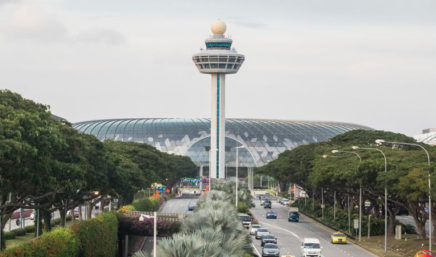
Singapore Changi Airport connects customers to over 200 destinations worldwide, with 5000 arrivals and departures a week by 80 international airlines. In 2017, Changi Airport celebrated a key milestone, serving 60 million passengers from close to 100 countries around the world.
One of the largest transportation hubs in Southeast Asia. It is currently rated the World’s Best Airport by Skytrax. The airport saw a record of 65.6 million passenger movements in 2018
– beating 2017’s record of 60 million passengers with a 5.5 percent increase. As of 1 March 2019, Changi Airport serves more than 100 airlines flying to 400 cities in around 100 countries and territories worldwide.

Airport
Top 10 Largest Airports in the World by Size

When it comes to the world’s busiest and largest airports, size matters—not just in terms of the area they cover, but also in the volume of passengers they handle and the number of flights they accommodate.
As air travel continues to grow, airports around the globe are expanding and upgrading to meet increasing demand.
Qatar Airways Announces New Flights to Hamburg, resume services to Venice:Click
In 2024, several airports stand out for their impressive size and capacity. This article takes a closer look at these massive aviation hubs, highlighting their key features and what makes them the largest airports in the world today.
Country Airport Area (sq km) Saudi Arabia King Fahd International Airport 776 United States Denver International Airport 135 Malaysia Kuala Lumpur International Airport 100 Turkey Istanbul Airport 76 China Beijing Daxing International Airport 46 Egypt Cairo International Airport 36 Thailand Suvarnabhumi Airport 32 Spain Adolfo Suárez Madrid-Barajas Airport 30 Canada Edmonton International Airport (YEG) 28 Netherlands Amsterdam Airport Schiphol 27 Australia Brisbane International Airport 27 Germany Frankfurt Airport 23 India Rajiv Gandhi International Airport 22
King Fahd International Airport, Saudi Arabia – Spanning a staggering 776 square kilometers, King Fahd International Airport is the largest airport in the world by area. Its vast expanse reflects its crucial role as a major hub in the Middle East.
Denver International Airport, United States – Covering 135 square kilometers, Denver International Airport ranks second in size. Known for its distinctive peaked roof and extensive facilities, it serves as a major gateway in North America.
Kuala Lumpur International Airport, Malaysia – With an area of 100 square kilometers, Kuala Lumpur International Airport is a key international hub in Southeast Asia, offering extensive services and connectivity.
Top 10 Busiest Airports in the World for 2023:Click here
Istanbul Airport, Turkey – Istanbul Airport covers 76 square kilometers. This relatively new airport has quickly become one of the largest and busiest, positioning itself as a central point for travel between Europe and Asia.
Beijing Daxing International Airport, China – Beijing Daxing International Airport, with 46 square kilometers, is one of the newest major airports, featuring an impressive design and extensive facilities to handle growing passenger traffic.
-

 Travel1 week ago
Travel1 week agoAir India to Expand US Operations with Three New Routes After a Decade
-

 Travel2 weeks ago
Travel2 weeks agoWhy We Should Avoid These Stamps in a Passport
-

 Airlines1 month ago
Airlines1 month agoInvestigations Reveal Fake Chinese Titanium in Boeing and Airbus Jets
-

 Tech4 weeks ago
Tech4 weeks agoChina’s CATL Plans 1,800-Mile Electric Plane Launch by 2027
-

 Airport3 days ago
Airport3 days agoTop 10 Largest Airports in the World by Size
-

 Aerospace4 weeks ago
Aerospace4 weeks agoChina’s Fighter Jets Turn Wings into Autonomous Drones
-

 Airlines4 days ago
Airlines4 days agoAir India Rolls Out A350s for Delhi-New York JFK and Newark Routes
-

 Defence3 weeks ago
Defence3 weeks agoBoeing Enhances Chinook with New Engines and Block II Upgrades at $96 Million







